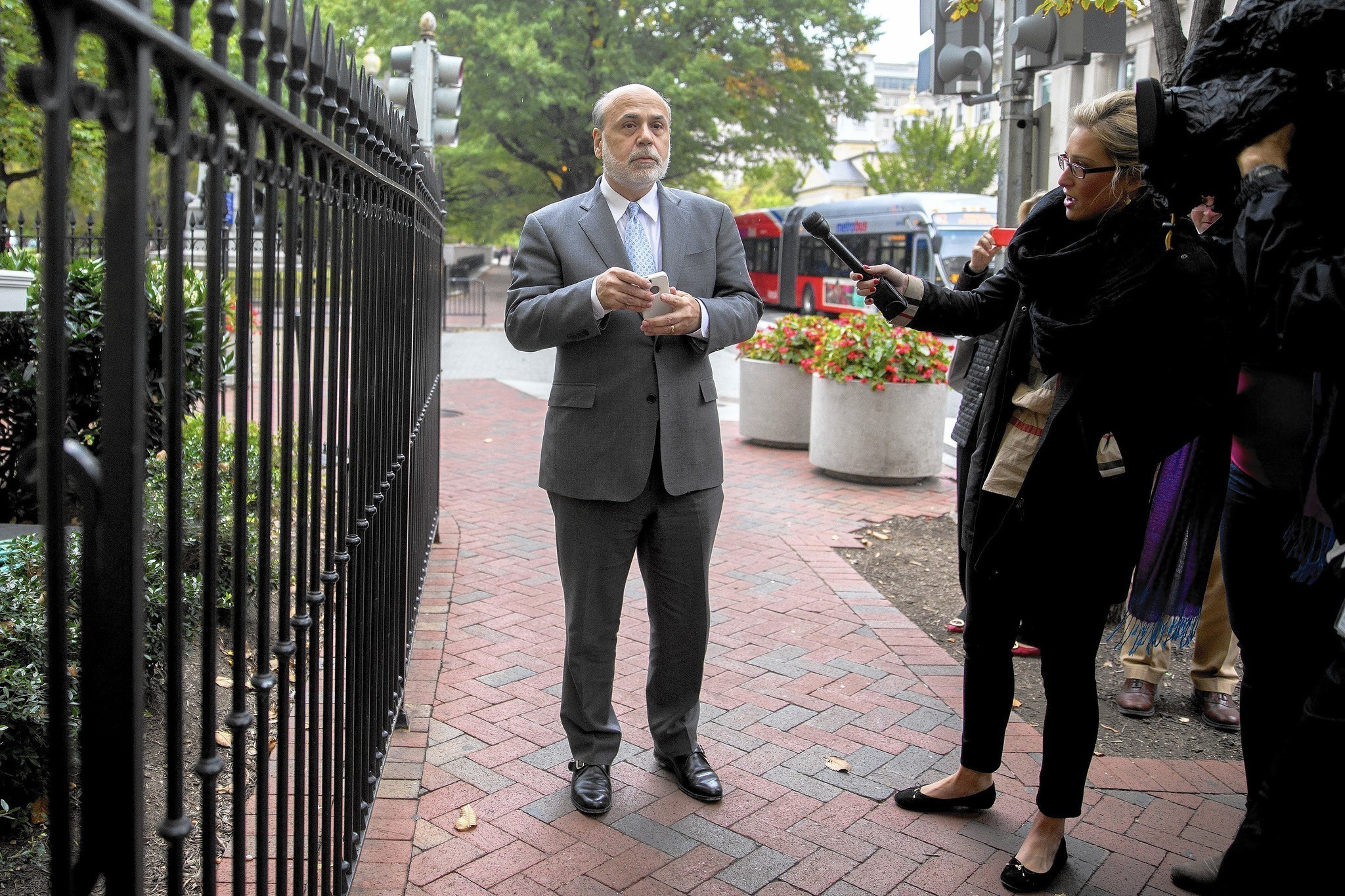by Adam Butler, GestaltU/Skew
There’s been much made of the recent move by Ben Bernanke accepting a position – less than a year after leaving his position as Chairman of the Fed – with hedge fund Citadel.
I’ll admit that my initial reaction was the populist one: Here we go again with the revolving-door between Washington and Wall Street that functionally kills any and all possibility for meaningful reform. Consider that the same people tasked with regulating financial firms have not only their political coffers stuffed by contributions from said firms, but also cushy and high paying job prospects waiting in the wings, and it’s very easy to be cynical about the current system.
But the populist reaction notwithstanding, I was pretty quickly turned around when presented with truly radical proposition by one of the world’s per-eminent cynics. Enter famed author, professor, researcher, and fight-picker Nassim Taleb. In his book Antifragile, he writes (emphasis mine):
A simple solution, but quite drastic: anyone who goes into public service should not be allowed to subsequently earn more from any commercial activity than the income of the highest paid civil servant. It is like a voluntary cap (it would prevent people from using public office as a credential-building temporary accommodation, then going to Wall Street to earn several million dollars). This would get priestly people into office.
Though Taleb and I may be on the same side of this debate philosophically, I have reservations about this proposal. Priests often go into the priesthood because of a spiritual calling. In other words, the price of their labor is inelastic; No matter what a church decided to pay a priest, it would likely have a similar amount of applicants. Does this extend to civil servants? Specifically, to what extent might impairing future income diminish the quality of individuals willing to engage in civil service?
Researchers have done extensive research on the question. While there are many papers on the topic, the general findings indicate that when politicians are paid more for their service, the profession attracts more candidates, and candidates tend to be more educated, stay in their positions longer and be more legislatively productive.
The singular, central tenet of economics is that people respond to incentives, so this shouldn’t come as much of a surprise. The implications of this, however, are likely to scramble your brain: If you want civil servants to be more effective, maybe the best strategy is to pay them more, not less. In the case of civil servants tasked with regulating Wall Street, perhaps a LOT more. It might seem contrary to the fundamental notion of “civil service,” but if we want a politician to ignore the future monetary incentives that might be offered by, say, one of the world’s largest hedge funds, one possible strategy would be to make them fabulously wealthy in their role as a servant.
At the end of the day, I don’t disagree with Taleb on the desired outcome. It’s impossible to ignore that the revolving door creates a principal-agent problem. But any honest assessment of the revolving door must take into consideration two opposing effects of limiting civil servant incomes:
1. We are likely to attract a more virtuous brand of politician, while simultaneously…
2. …attracting a less educated, committed and productive brand of politician.
If we limited the income potential for financial regulators, I suspect many of them would skip civil service entirely and go straight to Wall Street. How many? Would it be worth it anyway? Which of the above effects would be greater? I don’t know the answer, but it’s certainly worth considering before we go looking to the priesthood for the next Fed Chairperson.
Copyright © GestaltU/Skew











